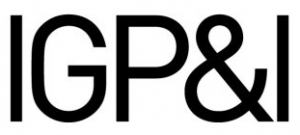Sanctions
Gard, like other companies, must adhere to international sanctions or restrictive measures to avoid severe consequences

Gard has developed an anti-money laundering and counter terrorism financing policy to prevent the participation of Gard, or any of our employees, in money-laundering activities or similar unlawful acts. Avoiding the risk of involvement in money laundering and terrorist financing may involve having to reject business opportunities due to indications of criminal origins of funds or assets.
Violation of international or economic sanctions can potentially have severe consequences for Gard, as well as for individual employees. Beside commercial and reputational loss, possible penalties for breaching sanctions may include fines, freezing of assets and/or imprisonment. Gard shall at all times, exercise due diligence and assess possible sanction risks.
To protect Gard, Members and clients from financial crime in all its forms, Gard conducts a thorough Customer Risk Analysis and stringent standards of due diligence as part of our comprehensive and risk based Know Your Counterparty (KYC) Framework. We expect our business partners to comply with applicable laws and adhere to ethical standards. You can read more in the useful links section.
The Gard group of companies is committed to maintaining high standards of corporate governance. We believe that effective corporate governance is essential to establish an open and transparent framework to deliver insurance products and services to our Members and clients.
The Board of Directors of Gard P. & I. (Bermuda) Ltd. is ultimately responsible for the management of the Gard group of companies (Gard or Group), including its corporate governance practices, and is committed to ensuring that a strong governance framework operates throughout the Group for sustainable long-term performance and value creation.
The Board monitors the Group’s operational and financial position and oversees its business strategy, including approving its strategic objectives, plans and budgets. The Board ensures that the Group adopts policies and procedures that govern our business conduct and the expected conduct of our employees.
Gard’s corporate governance framework, including its ‘three lines of defence’ model for managing risk, ensures that we have clear and systematic decision-making processes that provide clarity of responsibilities and ensuring adequate internal controls, risk management, accountability and transparency.
The Gard group of companies, as providers of marine insurance, must comply with a complex regulatory environment and comprehensive reporting requirements in each jurisdiction where the companies operate and are registered. The requirements vary depending on the jurisdiction and the specific activities of the company. Regulatory compliance in marine insurance involves staying informed about global regulations, conducting KYC checks, and ensuring adherence to industry-specific guidelines.
As a Bermudian and European based insurance group, there are various regulatory schemes which must be followed. First and foremost, the insurance companies need to comply with “Solvency II”.
“Solvency II” is a European Union (EU) directive that codifies and harmonizes the EU insurance regulation. It primarily concerns the amount of capital that EU insurance companies must hold to reduce the risk of insolvency. The directive sets out regulatory requirements for insurance firms and groups, covering financial resources, governance and accountability, risk assessment and management, supervision, reporting and public disclosure. Solvency II aims to improve consumer protection, modernize supervision, deepen market integration and increase the international competitiveness of the EU insurance sector.
Regulatory compliance in the context of sustainability refers to adhering to laws, guidelines, and standards that govern business operations with a focus on environmental, social, and governance (ESG) factors. The new “Corporate Sustainability Reporting Directive (CSRD)” requires companies, such as Gard, to report on the impact of corporate activities on the environment and society and requires the audit (assurance) of reported information.
Regulatory compliance is an ongoing process, and Gard must actively monitor changes, adapt, and maintain a culture of compliance to thrive in a regulated environment.
Whistleblowing is the act of raising concerns about misconduct or censurable, conditions to somebody who can do something about it. Such misconduct or censurable conditions can be a breach of generally accepted ethical norms, breach of law, or a breach of internal or ethical guidelines. Whistleblowing is positive both for Gard and for society at large as it means that misconduct can be remedied.
Whistleblowing is important to build a culture of openness and accountability and it helps to identify censurable conditions, misconduct, and potential threats to Gard. Gard encourage employees and external parties to speak up when they have a concern.
The whistleblowing channel is administrated by EY.
Gard views customer feedback as a valuable source of information to help us improve our products, services and business processes. We appreciate you taking the time to provide us with feedback.
Being FAIR is a core value in Gard. FAIR stands for Friendliness, Adaptability, Integrity and Result oriented. We have a complaints procedure to ensure fair treatment of insurance-related complaints in accordance with Norwegian and European guidelines. This is what you can expect from us if you have a complaint:
Complaints are routed through our Quality Management department to ensure they are treated fairly and to avoid conflicts of interest
You will receive a written confirmation within two working days of Gard receiving your complaint
Anticipated handling time for complaints is generally 14 days or less. If additional time is needed we will inform you and explain why there is a delay and when the process is likely to be completed
We will keep you regularly updated about the handling process and explain the outcome when the procedure is completed.
How to lodge a complaint?
E-mail: insurancecomplaints@gard.no
Post: Quality Management Department, Gard AS, P.O. Box 789 Stoa, NO-4809 Arendal, Norway.
What information should be included?
Name and contact details
Details of the insurance cover and/or service to which the complaint relates
Factual summary and details of the issues causing dissatisfaction.
The Gard group of companies must comply with any applicable privacy laws in the jurisdiction where the companies operate and are registered. First and foremost, Gard must comply with the General Data Protection Regulation (EU) 2016/679 (GDPR). In order to be complaint with such privacy requirements, Gard has a Personal Data Protection Policy.
The purpose of this policy is to outline the Gard Group’s implementation of the processing of personal data in order to promote compliance with any applicable laws and regulations in this regard.
The Human Rights Due Diligence report details Gard's methodology and processes for assessing human rights impacts in accordance with the reporting requirements of the Norwegian Transparency Act, specifically Section 5, paragraphs (a), (b), and (c).
This report explains how Gard assesses actual and potential adverse impacts on fundamental human rights and decent working conditions, not only within our own operations but also in our business relationships with our suppliers and business partners.
Supplier Code of Conduct
Code of Ethics and Business Conduct
Get in touch
Thor Magnus Berg, Senior Vice President, Head of Compliance and Quality Management



